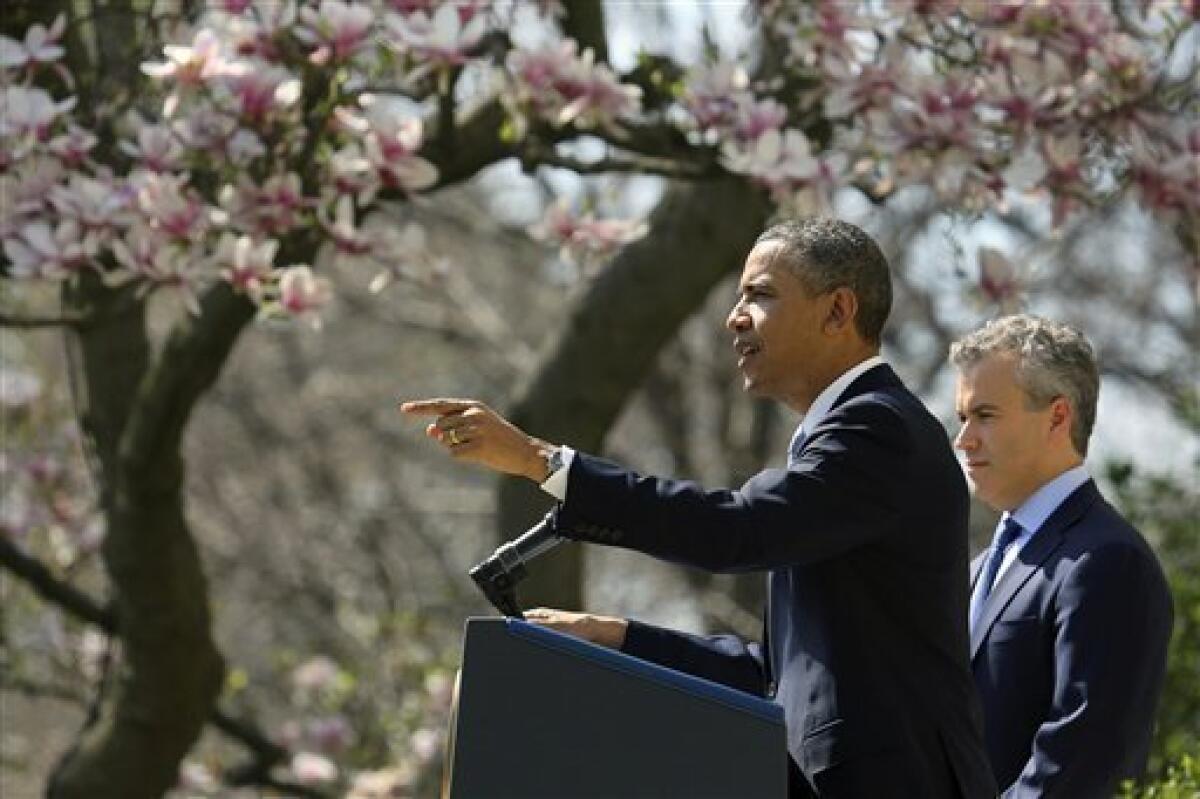Obama’s Social Security proposal sparks GOP confusion

WASHINGTON -- President Obama’s proposal to trim Social Security’s cost-of-living adjustments has sparked not only Democratic outrage, but Republican confusion.
In the days since Obama put the idea in his 2014 budget, Republicans’ reactions have included support, opposition and refusal to commit. The proposal was once a mainstay of the GOP’s deficit-reduction overtures to the White House.
House Speaker John A. Boehner said Thursday that the idea, the so-called chained Consumer Price Index, “is the least we must do to begin to solve the problems in Social Security.”
DOCUMENT: President Obama’s 2014 budget
But the chairman of the House Republican Congressional Committee, who is trying to preserve the party’s majority in the House in the next election, called it a “shocking attack on seniors.”
“You’re trying to balance this budget on the backs of seniors and I just think it’s not the right way to go,” Rep. Greg Walden of Oregon told CNN.
That potentially off-message comment provoked swift rebuke from the powerful Club for Growth, the conservative advocacy group that supports the measure as a starting point for reining in spending on government entitlement programs.
The club quickly assigned Walden a place on its “Primary My Congressman” list of Republicans who deserve a GOP primary opponent because they are insufficiently true to conservative ideals.
“We always knew Greg Walden had a liberal record, but he really cemented it with his public opposition to even modest entitlement reform,” said Club for Growth President Chris Chocola.
The cost-of-living proposal, long promoted by economists who say the government’s inflation adjustments are too generous, would shave a few dollars off the monthly checks of seniors, veterans and others who receive Social Security and other government benefits.
Chained CPI would also apply to the tax code, bringing in revenue by capturing more taxpayers at higher rates as the tax brackets are adjusted more slowly for inflation.
Opponents, led by liberal Democrats, say the change would hit the most vulnerable members of society, who should not be targeted for deficit reduction.
The potential tax change prompted another influential GOP-aligned group, Grover Norquist’s Americans for Tax Reform, to determine that a chained CPI would violate the group’s anti-tax pledge unless the added revenues were applied to lower taxes elsewhere in the tax code.
“Chained CPI is a very large tax hike over time,” Norquist tweeted as Obama’s budget was rolled out this week.
Rep. Paul D. Ryan of Wisconsin, the former Republican vice presidential nominee and the top party guru on budget issues, said the president was to be “commended” for taking on Democrats with the hot-button proposal in the budget. But Ryan panned it as a “modest” attempt at deficit reduction and declined to immediately lend his support.
In many ways, the top Republicans were simply fulfilling their roles: The House speaker is keeping options on the table toward a budget deal. The campaign chief needs to reelect the GOP majority in 2014. The outside groups need to agitate for their specific causes. But the proposal, which has been circulating for more than a year, has provoked an unusually disorganized response.
Democrats have been vocally displeased, although some have acknowledged that the change may be a necessary part of any budget deal.
How the parties portray the proposal in the coming weeks remains to be seen, but Boehner hinted that Republicans might steer away from using it against Democrats, as the campaign chairman seemed poised to do.
“I’ve talked to Chairman Walden,” Boehner said. “I’ve made it clear that I disagree with what Chairman Walden said.”
@LisaMascaroinDC
More to Read
Get the L.A. Times Politics newsletter
Deeply reported insights into legislation, politics and policy from Sacramento, Washington and beyond. In your inbox three times per week.
You may occasionally receive promotional content from the Los Angeles Times.











